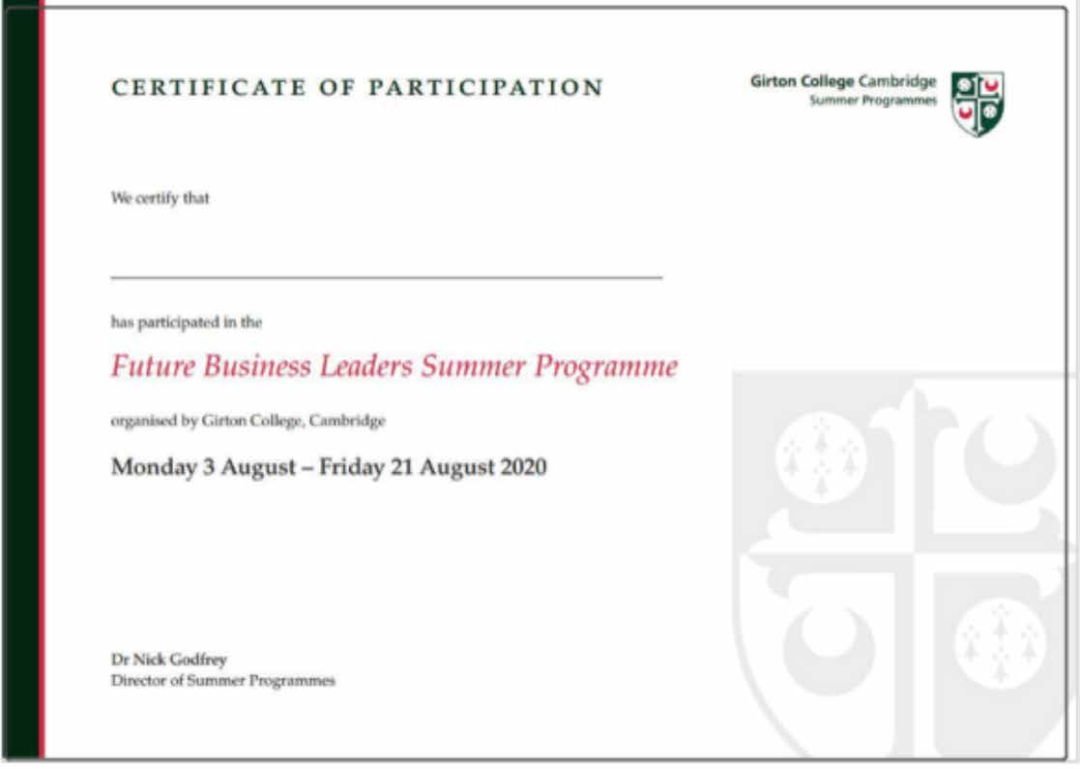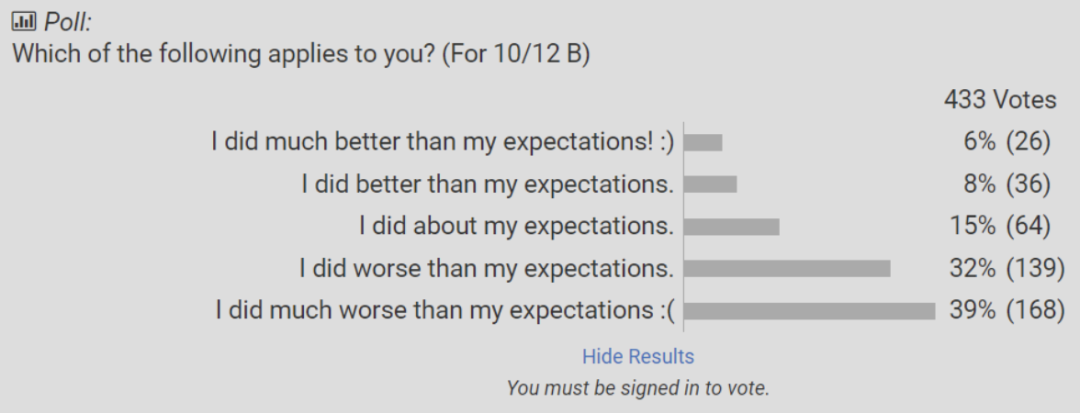作为一名拥有创意写作博士学位的职业作家,作为一名具备几十年文学写作教学经验的大学教授,作金牌写作导师,Eric给我们写来了一封长信,谈谈他对中国学生学习英文写作的感想、意见和建议。相信家长们读完后,一定会大受触动、受益匪浅。
I. Eric谈写作
Good Day, Parents of my students ! I have been asked to write my ideas about the pupils I have mentored, past and present, since I started working with Chinese students several years ago. Specifically, I’ve been requested to go over some of the common errors, identify tendencies, and highlight my strongest impressions of these students. So for the next few pages I will do precisely that.
家长们好!我已经有很多年指导中国学生的经验,现在他们让我写写我这些年的体会。具体来说,他们让我指出一些(中国学生学英语的)常见错误,总结学生学习特点,以及对中国学生印象最深刻的地方。我将在接下来的几页中,详细谈谈。
The first thing that I should emphasize by way of introduction is that I have a PhD in creative writing from an American university and have published my work successfully. In America as a graduate student (or student doing a ‘post-grad’, as they might put it in Europe), I went through the academic gristmill and produced (as required) plenty of ‘academic’ papers: Very bulky, abstruse, heavily-documented, stuffy, formalistic papers replete with academic jargon, no personal pronouns, no small talk, metaphors, or similes – just long documents stacked with assiduously arranged 2nd source add-ons, presented in stilted, humorless, mechanical prose.
首先做个自我介绍。我拥有美国大学的创意写作博士学位,并且出版过书。作为一个在美国获得学历的研究生,我经历了学术上的严格训练,并(根据需要)制作了大量的“学术”论文:非常庞大、深奥、含有大量文档、令人窒息的、形式主义的论文,充满了学术术语,没有人称代词,没有闲聊,隐喻或明喻– 只是长长的文档,堆放着精心安排的二手资料,以生硬、无幽默、机械的形式呈现。
Believe me when I say that the only people who read this turgid, quicksand-of-the imagination, tenure-track gobbledegook are other academics. I loathe it, and I feel that there is no surer way to make children HATE the writing process than to subject them to this sort of thing at an early age. A twelve year old kid should be encouraged to experiment, to get to know himself/herself, to be spontaneous without fear or harsh ‘feedback’, and to learn to (or exploit innate tendencies). Above all, to love language.
相信我,阅读这些膨胀的、毫无想象力的、堆砌着无用的专业词汇的文章,往往是其他学者。我讨厌这些,而且我觉得让孩子们在很小的时候接触这样的文章非常糟糕,它会让孩子厌恶写作。我们应该鼓励一个 12 岁的孩子去尝试,去了解自己,他们不需要担心刻薄苛刻的 “反馈” ,这样才能自然自发的学习,也就是说用最真挚的初心来写作。最重要的是,要培养他们对语言的热爱。
Here I will offer a couple of disclaimers. There are many disciplines and in the science areas international journals will only publish correct, well-researched, academic style Standard English. These periodicals are interested only in the results of painstaking research, and the style of writing necessarily reflects it. I regularly work with an elderly Russian geologist of considerable renown. Her English is not the best, not the worst, but we always struggle to get it into acceptable form. So far we are ‘batting 100%’ (an American baseball idiom which means we haven’t failed yet to produce acceptable papers). The bibliography reads like a Greater Manhattan Area phone book. Endless. In Scientific research, the academic style is indispensable because they are dealing with empirical substance. The Humanities crowd try to copy it to validate their discipline as a ‘science’ – which it is not. The result is cadaver-cold and pretentious most of the time. And never anything less than politically correct.
在这里,我有一些免责声明。在自然科学领域,国际期刊只会发表正确的、经过充分研究的、学术风格的标准英语。这些期刊只对潜心研究的结果感兴趣,而且文风必然反映了这一点。我经常与一位颇有名气的俄罗斯老年地质学家一起工作。她的英语不是很好,虽然也不是很差,但我们总能让她的论文被期刊接受。到目前为止,我们正在“100% 击球”(这是一个美国棒球成语,这意味着我们合作的论文还没有被杂志拒绝过)。
这些论文的参考文献读起来就像大曼哈顿地区的电话簿。没完没了。在自然科学研究中,这样的学术风格是必须的,因为它们处理的是观察和实践的内容。但是人文学科的人试图复制这样的套路,以验证他们的学科是一门“科学”——但事实并非如此。结果大多数时候他们写出来的东西都是冷若冰霜,自命不凡,当然了,他们的文章也从来没有任何不符合政治正确的事情。
Therefore, it is extremely important that my students learn two things (whether they are primarily writing students or history students who are expected to do some writing). The first is of course, the basic, classic essay format, which consists of Introduction, Two or Three Body Paragraphs, and Conclusion. Now it is interesting that two of the Big Exams – TOEFL and IELTS – give only minimal attention to the intro and the ending. They focus almost entirely on the body paragraphs. Their requirements (this is true of the whole exam) is very formulaic; therefore, the exam itself must be studied. Just being at an advanced level in English is not enough; you can speak English like a native speaker in the Diplomatic Corps and still fail the exam.
因此,让我的学生学习两件事是极其重要的(无论他们是主修写作的学生还是需要写作的历史学生)。第一个当然是基本的,经典的论文格式,由引言、两个或三个正文段落和结论组成。
现在有趣的是,两大考试——托福和雅思——只对开头和结尾给予了极少的关注。他们几乎完全专注于正文段落。他们的要求(整个考试都是如此)非常公式化;因此,必须我们必须对这些考试有所研究。仅仅在拥有高水平的英语水平还不够;也许你可以像英语是母语的外交人士一样说英语,但仍然无法通过考试。
In real writing, the classic model is alive and well, as it should be. I try to impress on my students that writing is not a linear performance like a piano recital where everything is in its proper procession and if you make a mistake people know about it. Nor, in music, should you perform the 2nd Movement of the Concerto before the 1st. Everyone would be completely taken aback. WRITING, to use words I try not to use because they are over-repeated, is nonetheless something that should be thought of as ‘holistic’ and ‘organic’. By this I mean that the best writing is rarely pre-planned. It simply grows out of itself. That’s why brainstorming and other thought-generating techniques are so valuable. Creative writers start with what I personally call a “guiding impulse’. That is, something arises in them that needs to get out, like a bat out of a cave or a bird out of a cage. (I, for one, believe that a lot is learned in the cave and the cage, then another force sets it free.) If you don’t believe me, parents, try it yourself. Imagine a school teacher you either liked a lot or didn’t like at all - but, either way, who stands out in your memory. Now think about that person and keep the thought going. Think not just with abstract memory but with your eyes. Recall their physical shape, typical clothing, and way of addressing the class. Soon you will start to recall secondary aspects of them: how their face had a nervous tic, how some had very large or very small hands, and certain favorite expressions they would use. Then stand back and survey that classroom of years ago, and you will be astonished how the lost faces come back to life. Imagine what the school looked like and the streets surrounding it, or the woods or the factory closeby. How the school hallway smelled of lysol and old lockers. How your books felt in your damp rucksack on a rainy day.
在真实的写作中,上述的经典模型依然非常有用。但是我总是试图告诉我的学生,写作不是像钢琴独奏会那样的线性表演,一切都是安排好的,如果你犯了错误,人们就会知道。在音乐表演里,你也不应该在第一乐章之前演奏协奏曲的第二乐章,那样的话所有人都会非常震惊。而写作不一样,它应该是“整体的”和“有机的”。我的意思是,最好的作品很少是预先计划好的。它常常是自发产生的。这就是为什么头脑风暴和其他能产生思想碰撞的行为如此有价值。创意作家写作从我个人所说的“引导冲动”开始。也就是说,他们有话要说,就像蝙蝠要从洞穴出来,或鸟儿要飞出笼子。 (我相信它们在洞穴和笼子里学到了很多东西,但是有另一种力量让它们找寻自由。)如果你不相信我,家长们,你自己试试吧。
想象一个你非常喜欢或根本不喜欢的学校老师——谁在你的记忆中脱颖而出?现在想着那个人并保持在他/她身上。不仅用抽象记忆去思考,还要用眼睛去思考。回想一下他们的体型、典型的着装以及在课堂上讲话的方式。很快你就会开始回忆起他们的次要方面:他们的脸是如何紧张抽搐的,他们的手也许很大或很小,以及他们的某些最喜欢的表情。然后退后一步,审视几年前的那个教室,你会惊讶于那些你以为已经忘记的面孔是如何复活的。想象一下学校的样子和周围的街道,或者附近的树林或工厂。学校走廊如何充满消毒水和旧储物柜的味道。下雨天,你的书在潮湿的背包里感觉。
It will all come back to you. But not at first; rather, by association and patience, by letting the setting and its long-ago people recreate themselves right down to the most minute details. (I tell my students all the time that “the truth is in the details.”) Try it, and you will be amazed at how much you recall, and how much of it comes back of its own volition. The living and the dead, they are all in a bubble just waiting for you to think of them again. And, lo and behold, when you do so they pop out and join you.
你会回想起很多东西。但一开始不是;相反,通过联想和耐心,让环境和很久以前的人们重新汇合,直到最微小的细节。 (我一直告诉我的学生“真相在细节中”。)尝试一下,你会惊讶于你能回忆起多少东西,其中有多少是自然弹出的。活着的或者逝去的,都在泡沫中,静静等你再想起他们。你瞧,当你这样做时,它们会自发弹出并加入你。
I have just described the writing process to you. Or most of it. The part I am leaving out for now is the importance of Rewriting. Authors much more accomplished than me are in unanimous agreement: WRITING IS REWRITING. The overwhelming majority of my students, it must be said, just don’t do it. Probably they don’t have time. But in real (and, alas, unforgiving) terms the essays are invariably no more than half-finished. First drafts that have been abandoned. That’s why, to be blunt, some of the papers are a mess when they come to me: the student didn’t follow up. To become accomplished writers they absolutely must develop this sort of conscientiousness. There is no other way.
我刚刚向您描述了写作过程,或者其主要部分。我省略的部分是修改/重写的重要性。比我更有成就的作者一致同意:写作就是重写。必须说,我的绝大多数学生不会这样做。可能他们没有时间。但实际上(恕我无情),这些文章总是只完成了一半就已放弃的初稿。这就是为什么,坦率地说,有些文章来我这里时是一团糟:学生没有跟进,没有修改重写。要成为有成就的作家,绝对必须培养不断修改/重写的责任心。没有其他办法。
But in terms of creativity, why should writing be a locked-in, pre-planned linear frog march carried out in the intellectual jailhouse of outline and rigorous formula? Only dull people do that, or those who dislike writing and just want to be ‘correct’ enough to muster a passing mark. Given that, why shouldn’t the Introduction be written last rather than first, considering that at first you really had no idea where the creative process was going to take you? What is stopping you? Think of writing like theater-in-the-round. Or like sculpture. The only thing that matters is the finished product and it doesn’t matter how chaotic the process might be. Like so many things in life, it’s the result that counts.
但就创意而言,写作为什么要像一场锁定、预先计划好的线性青蛙行军,在大纲和严谨公式组成的的智力监狱进行?只有不够聪明的人才会这样做,或者那些不喜欢写作并且只想“正确”到正好获得及格分数的人。鉴于此,如果一开始你真的不知道你的创意写作会有什么样的走向,为什么不能最后写引言而不是先写呢?是什么阻止了你?把写作想象成圆形剧场,或者像雕塑。唯一重要的是成品,而过程可能有多混乱并不重要。就像生活中的许多事情一样,重要的是结果。
Accordingly, the Introduction and Conclusion are the most important parts of the essay, not the least, and miscalculating this is an error in judgment that many young writers make. But my suggestion is logical when you stop and think about it, isn’t it? If you go to a party and see someone interesting (maybe a prospective ‘love’ interest, maybe a business opportunity) aren’t the First and Last Impressions the most important? In other words, the idea is to get noticed, to find a way in, and to do this you have to make yourself interesting. Likewise, as the first meeting draws to an end with the hopes of a 2nd one to follow, you can’t louse it up by doing something stupid or saying something banal or offputting. Simply, you need to make a flourishing exit. So don’t start by saying “Do you come here often?” Or “Haven’t I seen you somewhere before?”and don’t escape by saying, “Well, here’s looking at you, kid!” Or (to the girl) “Can I please have a kiss before I go?”
相应的,引言和结论是文章最重要的部分,而不是最次要的部分,混淆这一点这是许多年轻作家的错误。但是当你仔细想一想,我的建议是合乎逻辑的,不是吗?如果你去参加一个聚会,看到一个有趣的人(可能是潜在的“爱情”,可能是商业机会),第一印象和最后印象难道不是最重要的吗?换句话说,如果你想引起注意,找到参与其中的契入点,你必须让自己变得有趣。同样,当第一次会议结束你希望有第二次会议时,你不能做一些愚蠢的事情或说一些平庸或令人反感的话而把事情搞砸。
简而言之,这时候你需要一个体面的退场。所以刚见面不要就说“你经常来这里吗?”或者“我以前不是在什么地方见过你吗?”离开的时候也不要说,“ 你真好看(我真喜欢你)!”或者(对女孩)说“我可以在走之前亲一下吗?”
Your essay is no different. First impressions (engaging the reader) and Last impression (giving the reader something to remember and think about) are critical. I have seen thousands of essays that began “In today’s fast-paced world” – and I can tell you that it is not only boring but infuriating, because it says that the student’s mind was too lame to think outside the box or just that they didn’t care what they said, it was merely an assignment. A torture to endure. Nor is a two sentence word-for-word repeat of a two sentence introduction going to score any points with demanding readers. With IELTS maybe. (Again, that’s ‘formula’, nothing more. But not with real life writing, including the academic variety.)
你的文章也不例外。第一印象(吸引读者)和最后印象(让读者记住和思考一些东西)至关重要。我看过成千上万篇以“在当今快节奏的世界”开头的文章——我可以告诉你,这不仅无聊而且令人生气,因为它说明学生的思想太蹩脚,无法跳出框框思考,或者只是他们他们其实不在乎他们在说什么,只是在交差事。读这样的文章简直是受折磨。苛刻的读者也不会喜欢结论只是逐字重复引言的两句话。当然雅思考试这样可能得分。 (但我再强调一次,那是“公式”,仅此而已。但不是现实生活中的写作,包括学术多样性。)
So, as I was saying, the work needs to be creative, and pre-written outlines may be helpful to some, but their worth is limited and they should not be followed rigidly if it gets in the way of some beautiful change of direction that the essay itself calls for (even beyond the conscious will of the writer). Form and Substance find each other in good writing. Writing is always a PROCESS. A journey, if you will. The destination is what you’re going for, naturally, but the journey determines what the outcome will be.This does NOT mean to proceed without discipline or direction.
所以,正如我所说,写作需要有创意,预先写好的大纲可能对某些人有帮助,但它们的价值是有限的,如果它创作过程为了更好的效果 (有时候甚至超出作者的自觉意愿),有必要偏离大纲,就不应该死板地遵循它们。文章格式和写作实质应该相辅相成。写作永远是一个过程,或者叫旅程,如果你愿意的话。目的地自然是你要去的地方,但旅程决定了你能到何处。当然这并不意味着写作没有纪律或指导方向。
I cannot of course speak for what goes on in the public schools across a nation of 1.4 billion people; however, it is indeed pleasant and a privilege to deal with youngsters who for the most part seem very much at home with the goals their parents have set for them, and who go about their work cheerfully and efficiently.
我当然不能代言一个拥有 14 亿人口的国家的公立学校的教育。然而,与这些大多数情况下对父母为他们设定的目标非常接受,并且愉快而高效地工作的中国年轻人打交道确实是令人愉快和荣幸的。














